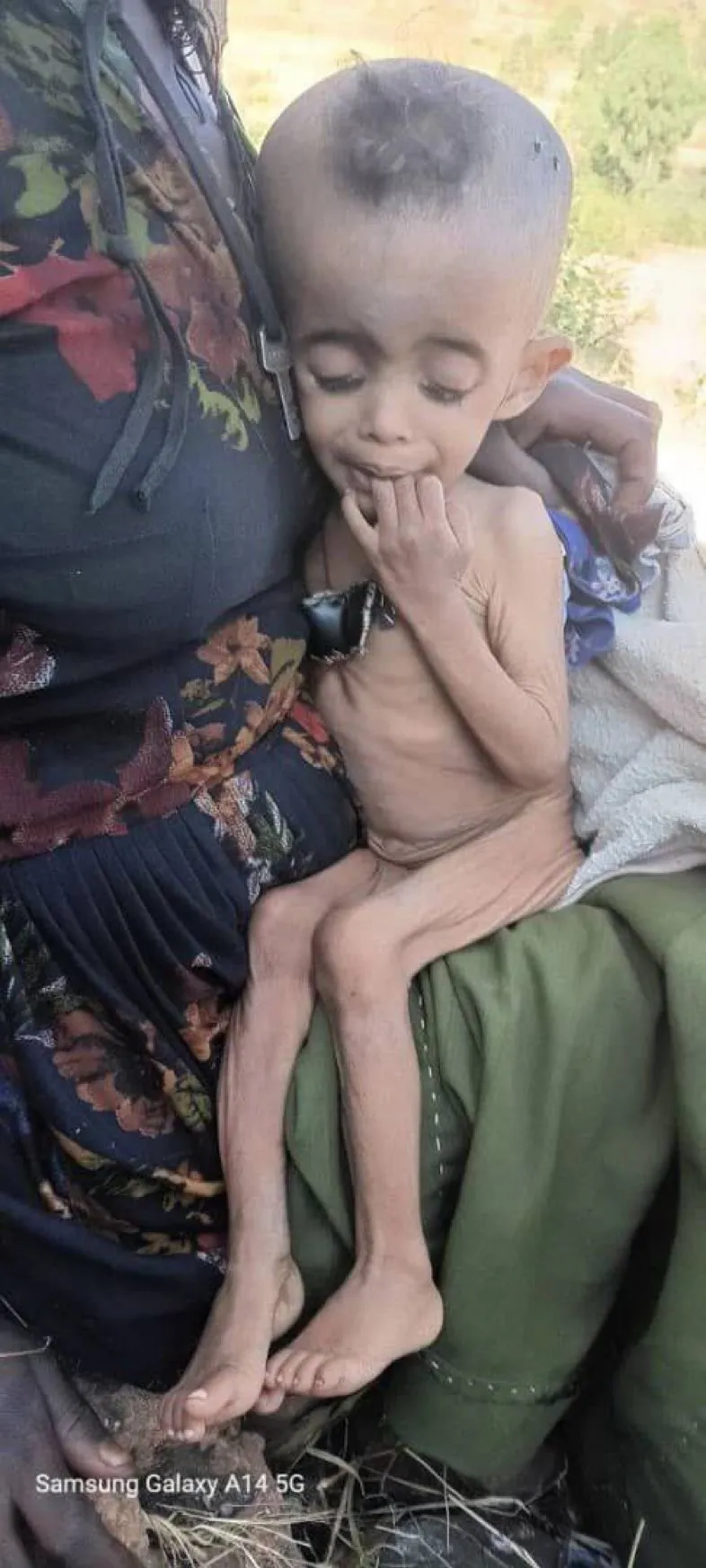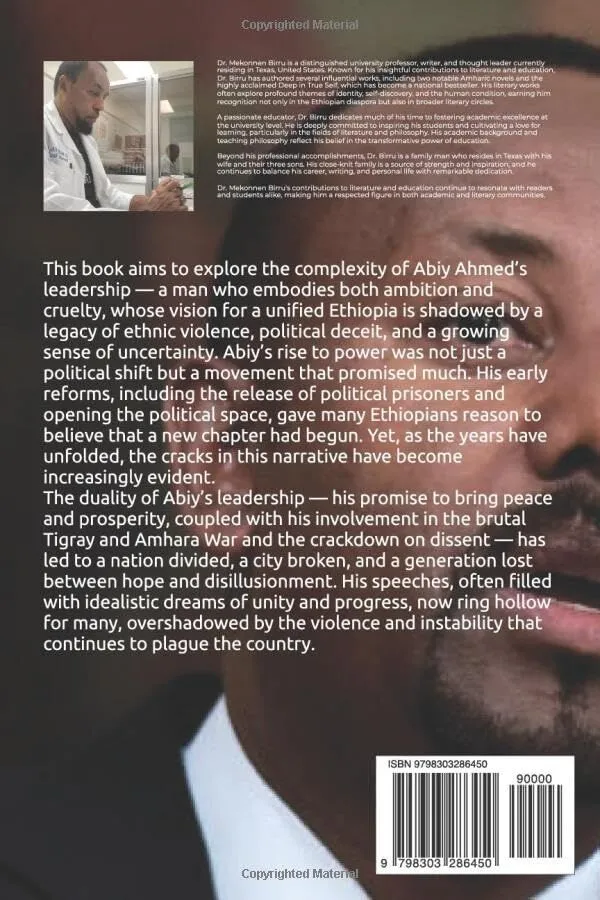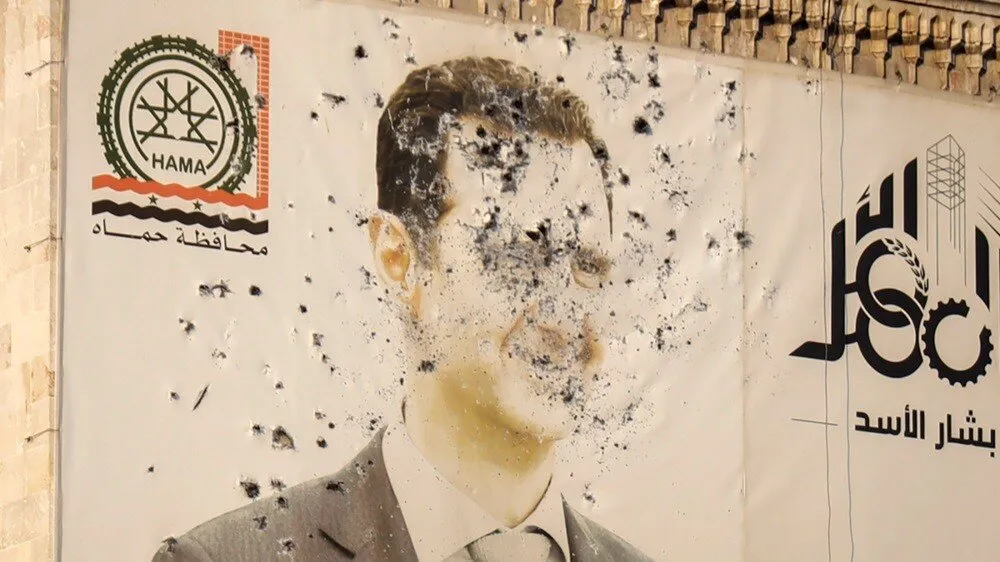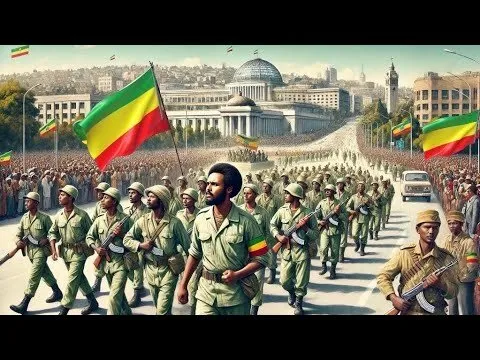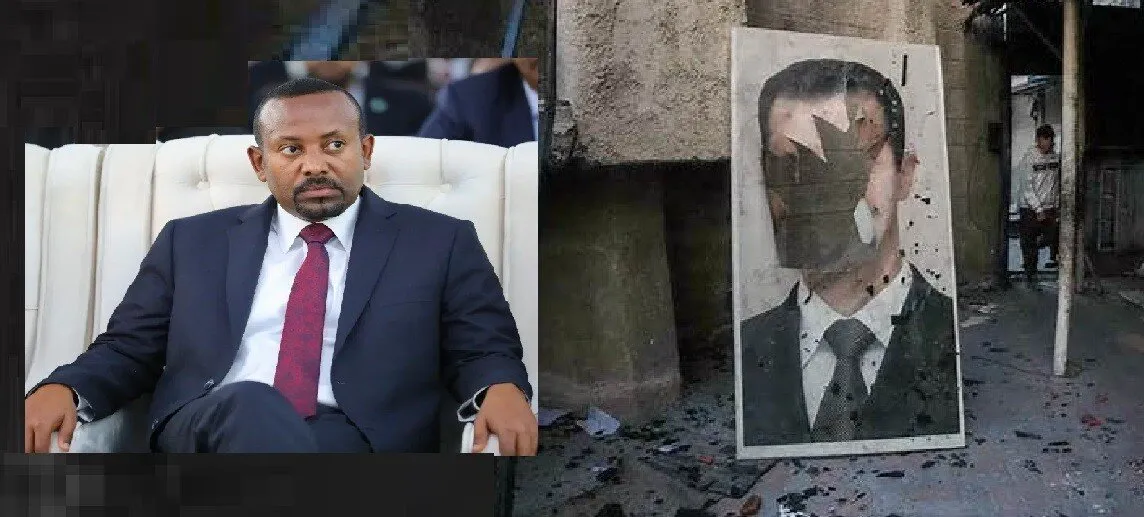By Abebe Gellaw
Hailemariam Desalegn’s recent interview with Peter Heinlein of VOA confirms that his rise to the helm of power can be largely attributed to his opportunistic imitation of how the late dictator talked and walked as well as his commitment to serving TPLF bigwigs that control him as their Trojan horse.
Hailemariam called political prisoners such as famed journalist Enskinder Nega and Andualem Aragie “terrorists” that wear two hats operating legally and illegally as operatives of terrorist organizations. He claimed that protecting the country from these kinds of people is a national priority.
Despite the fact that Hailemariam tried to portray himself as a God-fearing Christian, it turns out that this man of God has no qualms about the injustice and atrocities being committed against defenseless citizens by the brutal regime he took over as Prime Minister. Hailemariam gave no hint of reform and political concessions including the release of political prisoners or opening up the repressive political system that crushes peaceful dissent in violation its own constitution.
He defended the anti-terrorism law and the unjust incarceration of journalists and dissidents. According to Hailemariam, the regime is punishing only those who wear two hats and operate legally as journalists and dissidents and illegally as operatives of terrorist and violent organizations.
His convoluted, repetitive and at times unintelligent answer to a simple question why the government resorts to repression and blocking the free flow of information, Hailemariam did his best to use his dead boss’s [that he calls the “Great Leader”] words and catch phrases such as “crossing the red line and wearing two hats”.
In response to how he views the dominance of the TPLF that ruled the country in exclusion of the others, he made his best to please his TPLF bosses by denying the obvious and saying that EPRDF is composed of four “parties” that have equal share of power. According to Hailemariam, his election as Prime Minister is a “living witness” of the “internal democracy and equity” within the EPRDF.
“For those who say that EPRDF is biased to certain ethnic groups, is a false and unwarranted speculation… Internal party democracy is the basis of our strength,” he claimed in an interview punctuated with numerous factual [and grammatical] errors.
Asked why websites and other media outlets are being blocked, Hailemariam said that even in the United States Osama Bin Laden’s blo is not allowed. “You cannot open a blog of Osama Bin Laden in the United States. So it is the same,” he said.
—-
Following are excerpts from the VOA interview where Hailemariam tried to answer a couple of fundamental questions confronting him:
Peter Heinlein: One of the first things that Ethiopians notice about the change from Prime Minister Meles to you is that you are not part of a minority group and the armed struggle perceived as having ruled the country to the exclusion of the other larger ethnic groups. Can you say that the Tigrayan influence on Ethiopian politics is in decline? How do you answer to skeptics who say that the TPLF is still in control behind the scene?
HMD: Well, first of all, if you want to understand the whole situation you have to understand our party. Our party is a coalition of four major parties in the country… These are the four coalitions [sic] of the EPRDF.
EPRDF was initially been [sic] established by the two parties which has been [sic] in armed struggle in the Northern part of Ethiopia. TPLF was the pioneer of this struggle and so later on joined by the Amhara National Democratic Movement [sic] and then against by the OPDO and finally after the overthrow of Derg the Southern Ethiopian Peoples Democratic Movement has joined EPRDF….
After the renewal process, since the last ten years [sic] the renewal process has brought up a new, I mean, refined strategy and policy in line of the party. So in this regard, all the parties has [sic] gone into a new movement and has [sic] become parties which has [sic] embraced the same line, the same experience, I mean, the same way of working within the internal party system and almost equitable way of engagement. Even if there are natural differences with experience everywhere…
So I think all the four parties has [sic] equal settings in all the EPRDF mechanisms like the council, the party congress, assignments. The witness is I am the product of this process. So it is a living witness. For those who speculate that EPRDF is biased towards certain groups or ethnic groups, it is based on the powerful influence of this or the other group is a false and unwarranted speculation. So we see internally, in our party system the first and foremost thing is a democratic discourse. You know, internal party democracy is the basis of our strength. So those who are thinking from outside, they think without knowing the inside of the party. We have to explain this properly to those who are confused because they don’t understand the party mechanism and how the party operates.
This party is internally a democratic party. All its decisions and engagements are made in a democratic fashion. Therefore, you cannot say that this or the other party is influencing or overriding the other parties because all the all parties are equal number of constituents, I mean, individuals, that constitute the EPRDF and they have all the influence necessary if they want in a democratic process…
Peter Heinlein: Ethiopia has been criticized in some quarters for its tight control over the flow of information. Critical newspapers have been forced to close, journalists have been accused of violating anti-terrorism laws, and websites have been blocked, even VOA has been jammed, foreign broadcasts have been jammed. What would your government do particularly in this high profile cases such as that of the newspaper Fiteh that has been closed and the jailing of very critical blogger-journalist Eskinder Nega?
HMD: I know that these are your friends and you are so much sympathetic about them. The only thing is, Peter, you have to understand that anybody who has two hats should stop to wear two hats and should wear only one hat in a possible way. These two hats are one hat in a legal system, legal operating on the other hand having the other hat, which is illegal and violent working with a violent organization.
People who are arrested in Ethiopia are not arrested or convicted because they are working in a legal manner. Those who are arrested are has a connection with violent organizations. They are not convicted because of their journalistic business. It is allowed, you know have been there, you have been operating there but you couldn’t cross the red line ahhh to have a connection supporting a violent organization, terrorist organization. That is a case and I think it is a national security matter. It is a different thing. It is not journalism; it is not opposition.
Opposition doesn’t operate in illegal and violent manner connecting itself with ahhh, by the way, with terrorist groups. These are individuals not parties. We have never convicted any party because we know that those legally registered can operate legally in the country. But individuals who are registered with these parties but having two registration, one registration legal parties the other registration with illegal and violent terrorist parties.
They will be convicted for not legally hat but for the other hat which is illegal, violent and connection with terrorist organizations. So we have to differentiate between the two. If they stop clearly, unequivocally without any hesitation to work on the legal spectrum it is always the room is there [sic], the place is there.
If they mix the two, then we delineate between the legal one and the illegal, violent, terrorist one and for the action which is the second hat the violent and terrorist connection and support. Then that will be convicted according to the law of the land and will be punishable. I think these differences should be understood for you. In the United States it is not a problem because journalists do not go illegal way.
They go for legal and they have only got one hat. They do not have a mixed hat. So that is the difference between here and in Ethiopia. Unusually the Western countries do not understand the mix because they do not have this problem. They just see that all journalists work in legal manner. They don’t have this problem of illegal and the other hat. So that difference is sometimes confused. As far as we are concerned we focus for [sic] our national security interest.
Our national security interest cannot be compromised somebody having a two hat. We want to tell them properly that they have to have only and only one hat, which is legal and the legal way of doing things between journalism and opposition discourse. But if they opt to have two mixed functions then we are very clear to differentiate the two. People should be questioned for illegal and violent terrorist connection.
Peter Heinlein: What would be your government’s position on may be possibly opening up a little bit on the issue of press freedom. Right now websites are blocked, foreign broadcasts jammed and newspapers are being closed.
HMD: This I think should be very clear that my government has no policy of blocking these issues. It is depending on the websites or whatever that comes in. If there is any connection with these kind of organisations it is obvious that is done in every country. You cannot open a blog of Osama Bin Laden in the United States. So it is the same.
—-
Full interview on VOA
[jwplayer mediaid=”10846″]

